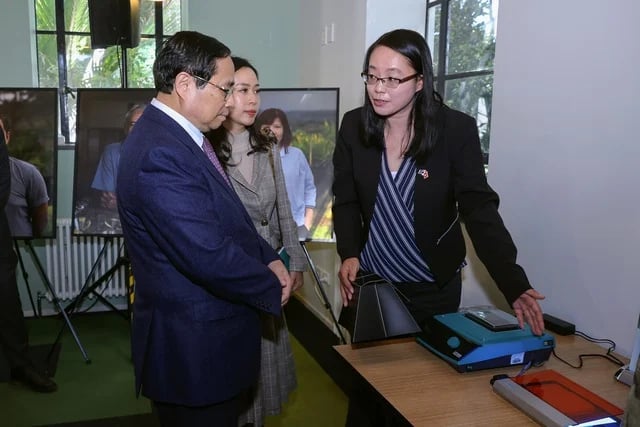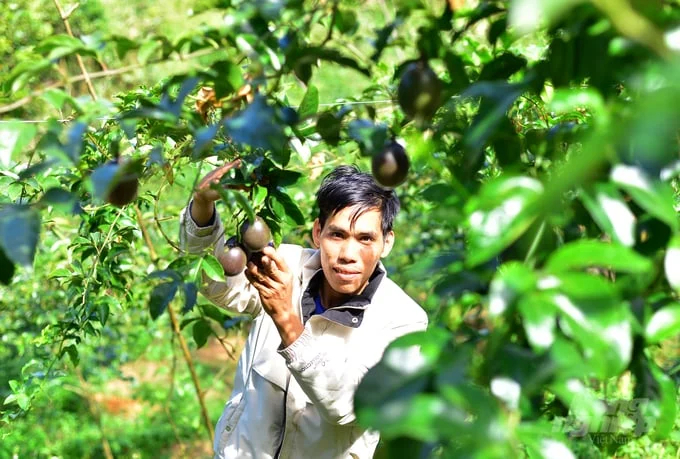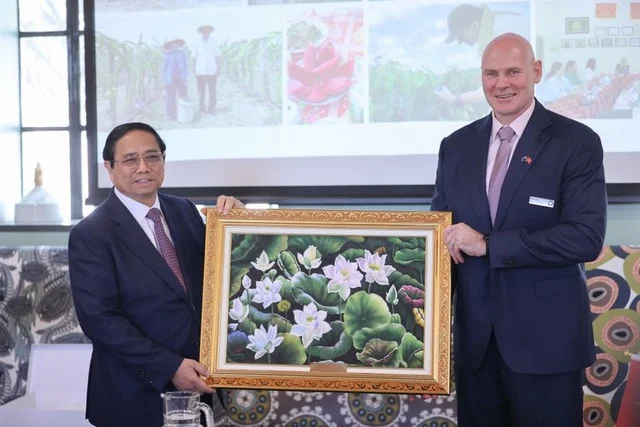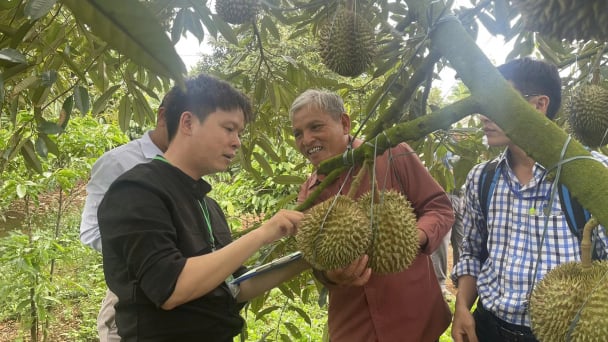June 1, 2025 | 04:05 GMT +7
June 1, 2025 | 04:05 GMT +7
Hotline: 0913.378.918
June 1, 2025 | 04:05 GMT +7
Hotline: 0913.378.918

Prime Minister Pham Minh Chinh during his visit to the New Zealand Institute for Crop and Food Research. Photo: VGP/Nhat Bac.
During his official visit to New Zealand on March 10 (local time), Prime Minister Pham Minh Chinh visited the New Zealand Institute for Crop and Food Research (PFR). Here, he received an overview of the Center and its collaborative projects with Vietnam.
In Vietnam, the PFR collaborates with farmers, scientists, food companies, export businesses, the Ministry of Agriculture and Rural Development, and the Ministry of Science and Technology to execute projects aimed at enhancing crop production, quality, and pest resistance through the research and production of new high-quality crop varieties. These projects also involve employing new post-harvest and processing technologies to benefit farmers, individuals, and enterprises.
Particularly noteworthy is the project aimed at bolstering Vietnam's export-oriented passion fruit industry, which was approved by the Ministry of Agriculture and Rural Development in November 2023, with a budget of $3.3 million. This project will be carried out in Son La and Gia Lai provinces from 2023 to 2027.

The New Zealand Institute for Crop and Food Research is contributing 3.3 million USD to the development of Vietnam's passion fruit industry. Photo: Minh Hau.
The project aims to support small-scale passion fruit farmers and other participants in the value chain to increase productivity and profits. International experts will assist farmers in enhancing their capacities and expertise and transferring high-quality passion fruit cultivation techniques to stakeholders in the value chain, including farmers and personnel involved in post-harvest, processing, and marketing. Furthermore, the project will promote adopting smart agricultural practices to address climate change.
Moreover, the PFR is also undertaking a dragon fruit project aimed at developing the dragon fruit industry and enhancing the income of smallholder farmers. This project focuses on researching solutions to combat white and brown spot diseases in dragon fruit trees, leading to a reduction in fungicide usage by up to 33%. Additionally, the project introduces a more efficient growing system featuring improvements such as automatic fruit washing, resulting in doubled productivity and improved fruit quality.
Remarkably, within this project, three new varieties of dragon fruit have been bred and commercialized, exhibiting higher disease resistance, enhanced flavor, and new colors. These varieties are currently undergoing testing in various potential areas, including New Zealand.
Furthermore, in Binh Dinh province, the PFR has partnered with the local Department of Agriculture and Rural Development to cultivate safe vegetables following the Good Agricultural Practices (GAP) process and establish a branded line for the market. This initiative has contributed to a 30% increase in income for 2,000 participating farming households.
In Dak Nong province, the PFR has collaborated on establishing an avocado export supply chain, implementing strategies to enhance nurseries to mitigate diseases in mature trees, and providing guidelines for farming practices, pest and insect management, post-harvest processes, and supply chain operations.

Prime Minister Pham Minh Chinh presenting a gift to the New Zealand Institute for Crop and Food Research. Photo: VGP/Nhat Bac.
Addressing the Center, Prime Minister Pham Minh Chinh commended the Center's research and development accomplishments and the outcomes of its collaboration with Vietnam in the nation's advantageous export sectors such as dragon fruit and avocado, promoting cleanliness, sustainability, and superior quality.
"In doing so, we recognize that despite the geographical distance between our two countries, the sentiments are close, 'from heart to heart,' bringing tangible effectiveness and benefits to the people of both nations," shared the head of the Vietnamese Government.
After 50 years of establishing diplomatic ties, the two countries have ascended to Strategic Partners and are progressing toward greater cooperation. They are collectively participating in agreements such as the Regional Comprehensive Economic Partnership (RCEP), the ASEAN-Australia-New Zealand Trade Agreement (AANZFTA), and the Comprehensive and Progressive Agreement for Trans-Pacific Partnership (CPTPP).
The Prime Minister emphasized that during this visit, he and New Zealand leaders would deliberate measures to further enhance bilateral cooperation, particularly in trade, investment, labor mobilization, education and training, and agriculture, aiming for deeper, more substantive, and more effective engagement. Both nations possess complementary advantages: New Zealand boasts vast land with a sparse population, while Vietnam has a densely populated 'narrow land.' Additionally, both countries share rich cultures, cuisines, and identities.

The Prime Minister and Ministers took photos with leaders of the New Zealand Institute for Crop and Food Research. Photo: VGP/Nhat Bac.
These constitute pivotal pillars for organizations and enterprises from both countries to foster investment cooperation, with research, agricultural production, and food processing being significant areas.
The Prime Minister expresses his hope that both sides will continue to champion the achievements of their cooperation while expediting collaboration in areas with immense potential, particularly striving for breakthroughs in agricultural economic cooperation.
"We are grateful to the people of New Zealand for their gracious and warm hospitality and always extend an open invitation for you to visit Vietnam," remarked the Prime Minister.
The New Zealand Institute for Crop and Food Research plays a vital role in research and development, driving advancements in crop, seafood, and food industries through the application and commercialization of research outcomes. Renowned for its world-leading expertise, this facility offers innovative solutions in the high-tech agricultural sector.
Translated by Quynh Chi

(VAN) For the durian industry to succeed, the value chain must fulfill its commitments to the government, the community, and international partners.

(VAN) Vaccinating juvenile pangasius helps reduce disease, antibiotic use, and farming costs, increasing profits for export-oriented farmers in An Giang.

(VAN) Due to a limited supply of workforce and competitive recruitment requirements, businesses struggle to retain talented veterinary human resources.

(VAN) WOAH’s guidance aims to mitigate disease risks through a One Health approach that balances economic, conservation, and public health interests.

(VAN) Ms. Nguyen Thi Dung, Deputy Director of Ngoc Hoang Cooperative, shared about the journey of bringing dragon fruit to Europe, achieving annual revenues in the billions of VND.

(VAN) Bamboo products from Thang Tho Bamboo Cooperative have reached many countries around the world, while also creating jobs for local workers.

(VAN) The Management Board of Con Dao National Park reported that a green sea turtle, tagged in the Philippines, has traveled thousands of kilometers to lay 84 eggs on Bay Canh Islet.